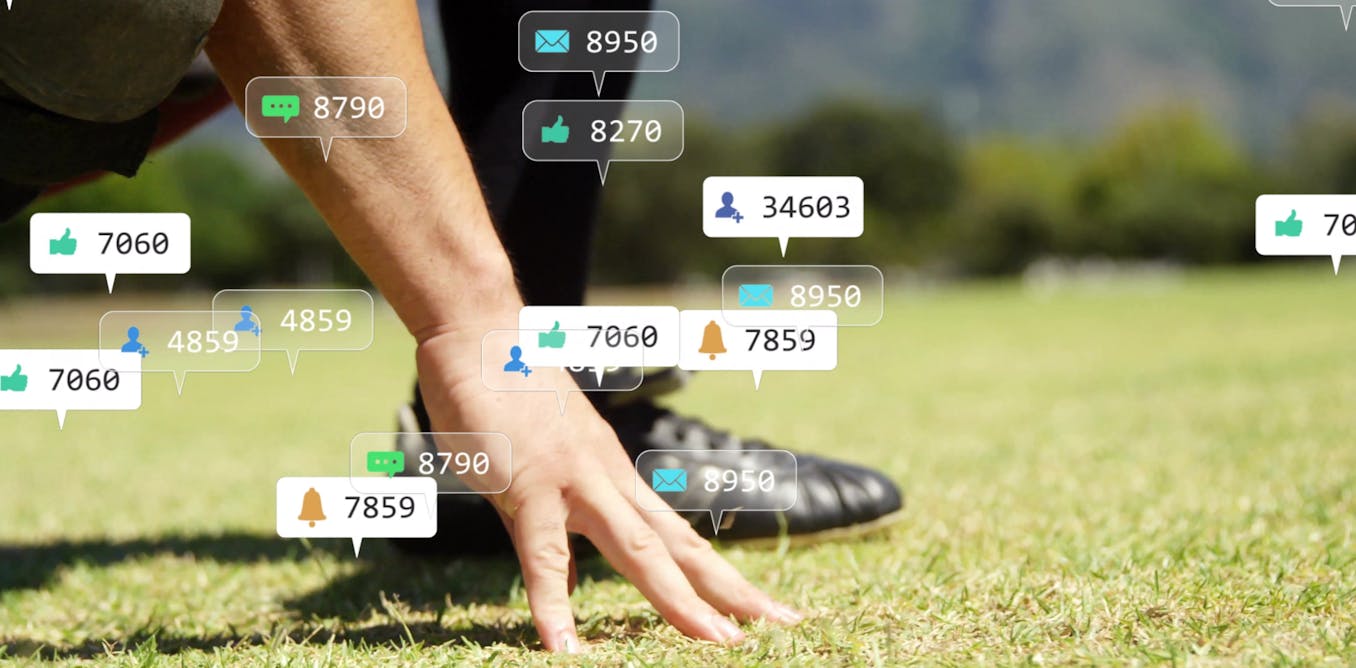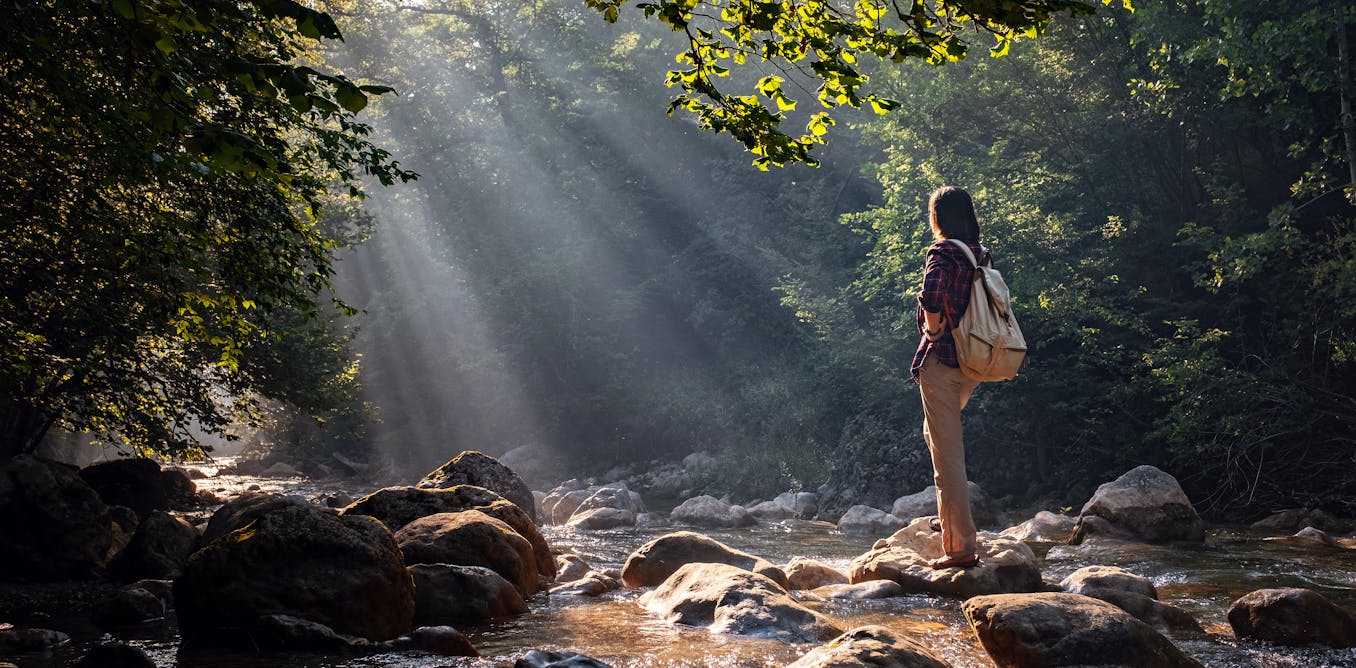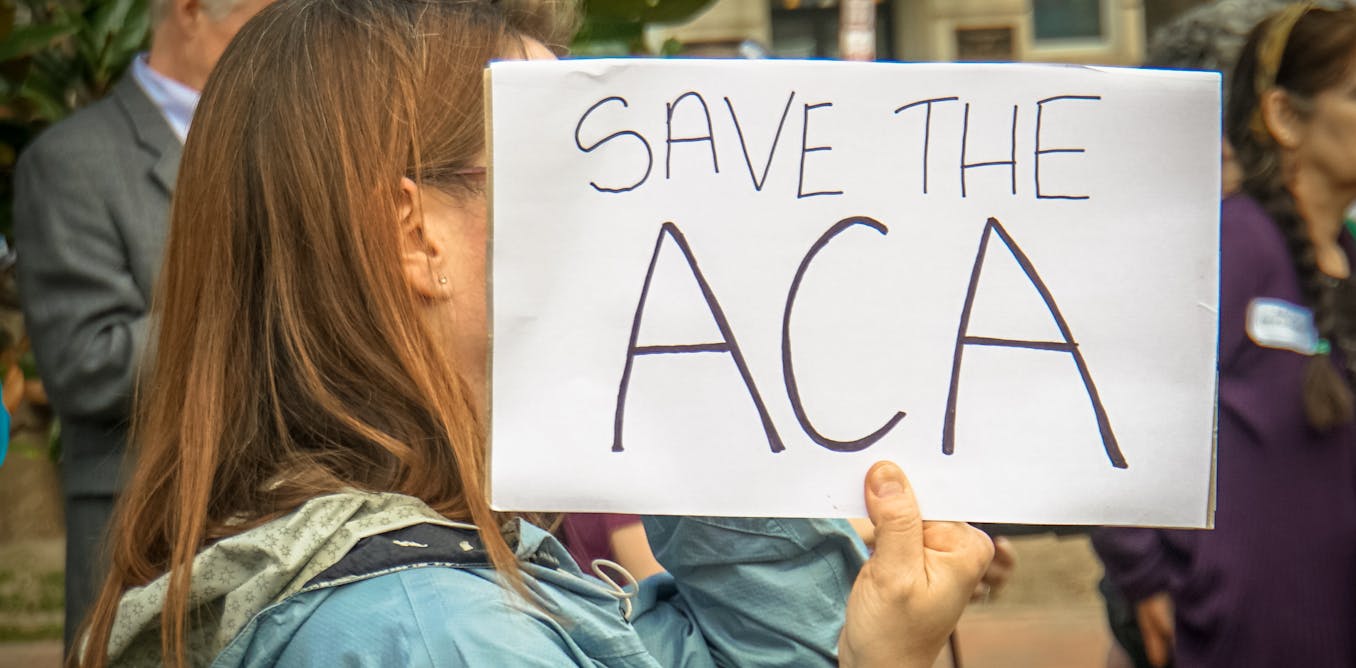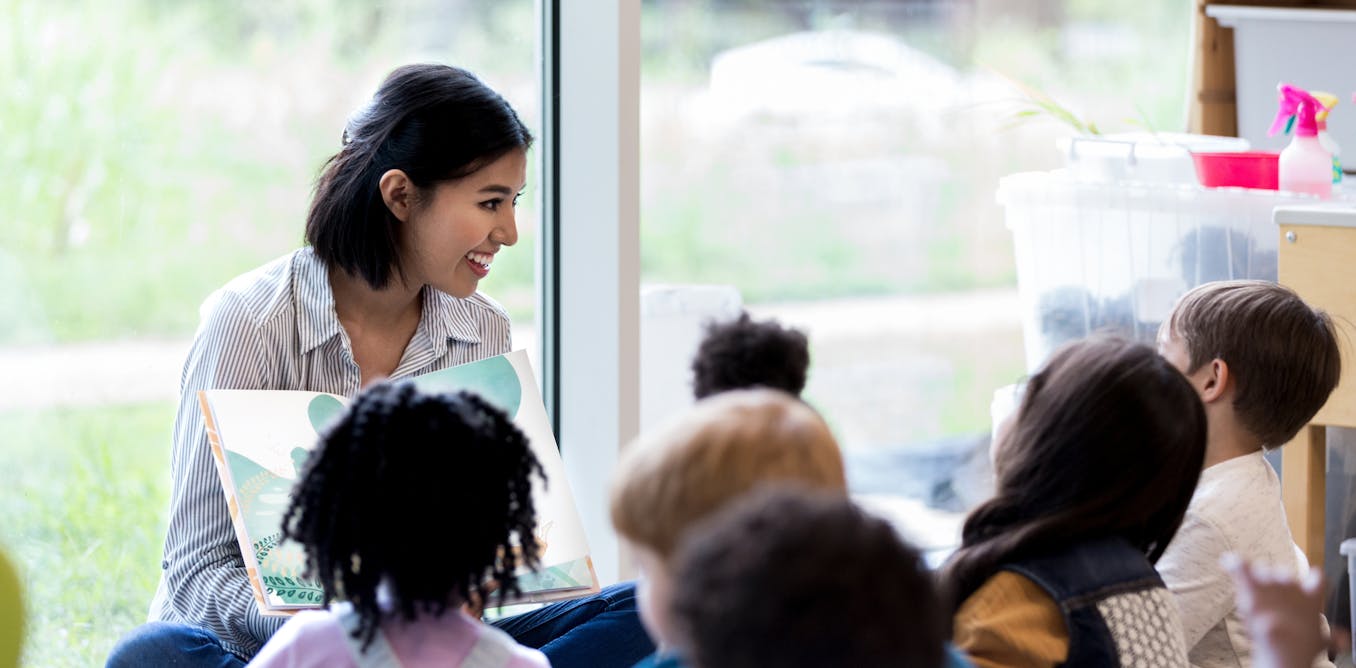What does it mean to live as a Rohingya woman in the world’s largest refugee camp in Bangladesh? In a country that doesn’t want you. In a community that oppresses you. In a camp where abductions are commonplace.
They are stateless, forbidden to work. They do not attend regular schools and may only leave the camp with special permission. Frustration, unaddressed trauma and the steadily increasing threat from militant groups are making the situation of Rohingya women in refugee camps in Cox’s Bazar, Bangladesh, almost unbearable. In contrast to the men, they have few opportunities. Getting an education, moving around the camp and even going to the toilets pose a safety risk. But some women are still seizing the opportunity for education that is offered to them in the camp — despite the resistance they face in this male-dominated society. A report by Birgitta Schülke, Naomi Conrad and Arafatul Islam.
#documentary #dwdocumentary #bangladesh #reporter
______
DW Documentary (English): https://www.youtube.com/dwdocumentary
DW Documental (Spanish): https://www.youtube.com/dwdocumental
DW Documentary وثائقية دي دبليو (Arabic): https://www.youtube.com/dwdocarabia
DW Doku (German): https://www.youtube.com/dwdoku
DW Documentary हिन्दी (Hindi): https://www.youtube.com/dwdochindi
What does it mean to live as a woman in the world’s largest refugee camp. In a country that doesn’t want you. In a community that oppresses you. It feels as though I’m in a prison. We’re not allowed any space and that makes me angry. In a refugee camp – where abductions are commonplace.
If they disobey they will be picked up and beaten. This is a story about women who want to thrive. In a place where their community has nothing: no home, no basic rights, no security. Cox’s Bazar is home to almost one million Rohingya refugees – the stateless Muslim
Minority from neighboring Myanmar that long struggled for independence. In 2017, the Rohingya fled for their lives, as the army of Buddhist-dominated Myanmar bombed and burned their villages, raping and murdering the inhabitants. Since then, they’ve been living in this overcrowded camp in neighboring Bangladesh.
They’re not allowed to work, or go to a regular school. Bangladesh wants to send them back as soon as possible. But the military regime in Myanmar doesn’t want them back. Since her arrival in the camp five years ago, 30-year-old Romida Begum has shared a room with her mother and brother.
When she has a rare moment to herself, she likes to watch TikTok videos. In Myanmar we had a space near our house that was secluded. We women used to go and sit and chat there together. I was happy. We don’t have anything like this here in the camp.
Here, we always have to stay inside our huts. That’s why it’s so difficult for us women in the camps and many of us are sad and depressed. In the conservative Rohingya community, many believe that women like Romida should stay at home and observe strict purdah.
Which means they’re not allowed to show themselves to any men who are not their relatives or husbands. It’s difficult to practise purdah in the camp. When we go to the toilet, they see us, when we collect water, they see us. Even when we’re sitting inside, people who pass along outside can see us.
It’s very difficult. Romida has had to learn to navigate the outside world. Thanks to a UN quota, she’s chairwoman for one of the camp’s neigborhoods. Romida represents some 16,000 people. She liases with NGOs and resolves family disputes. I wanted to make sure that the people in the camp are safe and happy.
I hope to help provide the things that they need through every possible source. Since she was elected, she’s been a target of frequent threats by men who resent her position. But Romida has stood her ground.
She wants to give a voice to the girls and women in the camp – for whom basic things like going to the toilet still remain a huge challenge. We have only one toilet for all the families around here. Every day we need to stand in line.
Young women in particular feel ashamed when they have to wait in line with men Ashamed and often scared. Even though Romida doesn’t want to spell it out in front of the camera, other women explain that toilets in the camp are places where sexual harassment and even rape are commonplace.
Especially after 5 pm, when aid workers are no longer allowed in the camps. After that time, the camp is a dangerous place. Domestic violence is prevalent, rape is prevalent, sexual assault’s prevalent, child marriage is prevalent. Sexual harassments. yeah, everything. Dayna Pérez from Australia has co-founded a learning center for teenage girls in the
Camp. Men and boys are not allowed to enter this classroom. This is how Dayna and her colleagues are trying to reach the many families who are unwilling to send their adolescent girls to school because of safety concerns, but also because of cultural norms.
The girls, we just witness that they start dropping out of the class, from 10, 11, 12 – , you’ll just see them disappear from the learning centres and everyone knows why. Because they started menstruating and now they’ve been kept at home. So we’re trying to catch these disappearing girls.
They learn Maths, Burmese, English, and life skills – for three hours a day. For many of the girls this is first education they ever had. I’m glad that I’m learning. When I’m out in the camp and get lost, there are signposts everywhere – in English or Burmese.
If I can read them, I can find my way back home. If I manage to get enough education, I would like to become a teacher or a doctor. But that might not be possible. But not only their families restrict what these girls can learn – the Bangladeshi government does too.
Rohingya children are only allowed to get a basic education. The classes in the camp have to follow the curriculum of Myanmar. Teaching Bangla, for instance, is strictly forbidden. Classes do get checked to make sure the curriculum is being followed…yeah, the way it’s approved.
So there would be repercussions if it wasn’t taught to a T.. you know, for example, if Bangla was found inside a book, that would be a problem. Yeah, the authorities are very, very strict on this. We’re leaving the camp to meet a top Bangladeshi official who is responsible for the Rohingya refugees.
Mizanur Rahman defends the decision to deny the Rohingya a Bangla education. We are not liable to provide them the education. Why should we pay our taxpayers’ money to educate the other country’s people. It’s not our mandate. So to be clear, state policy is not to integrate these people? Definitely not.
They won’t force the Rohingya back to Myanmar, he says. But the pressure on the Rohingya community is growing. The refugees are no longer allowed to travel between different parts of the camp that was recently enclosed with barbed wire. On top of that, international relief organizations have had to cut back their rations because
Of a lack of international funding. Shahida Win was tired of waiting for support that might never come. Unlike many other women living with her in the camp, she had had an education back in Myanmar. So she decided to share this knowledge and started a small school in her hut.
I thought if I can pass on knowledge to others, it would be a good thing. Then each girl could educate others. That’s why I decided to become a teacher. But I couldn’t fulfil my dream. (..) I was threatened in various ways. People even used to throw mud at me and things like that.
At some point I had to stop. But she wasn’t prepared to give up fighting for the rights of women. So, she started to write, about her life as a woman in the camp. Now I’m fighting with my pen, she says.
We want equal rights as men, that means education, freedom and everything else that men have. It’s not that I am against purdah, but it’s possible to still get an education and ‘live’ while practising purdah. But soon after she started to express her opinions publicly, she was attacked by militant
Rohingya groups operating inside the camp. Ever since, she has nightmares and doesn’t feel safe anywhere in the camp. She longs to return to Myanmar, but that’s not an option either. If I went back – they would throw me straight into jail.
You know, I’ve never known peace, I don’t know what it feels like. I want to feel it. But so far I never have. Chairwoman Romida Begum is also aware of the danger she is in – all the time. Today, she has a meeting with women from her neighborhood.
She organizes regular get-togethers – to share news and answer any questions. If we have any problems, she solves them and gives us peace of mind. With a man, we could only discuss half of our problems, because there are things we feel uncomfortable talking about with a man. That’s why we elected a woman.
Their biggest concern: their safety. They feel that police don’t protect them enough. Abductions and extortion are rampant. One woman’s son has been kidnapped for the second time. They called us and said we would get him back if we paid 2000 Euros, If not they will kill him.
I borrowed money from various people and sent it to them. Who are they? I don’t know. It’s an open secret that militant Rohingya groups are behind the kidnappings – but the women are too scared to even to whisper their name. We’re outside the camp again.
A contact has arranged a short meeting with a member of the most powerful militant group operating in the camps. This man belongs to the Arakan Rohingya Salvation Army. In Myanmar, the group has been fighting for self-determination. But now they’re terrorizing their own people, acting like the moral police.
We tell women to stay inside and if they go they have to be properly veiled. If they don’t comply they will be warned. If they still don’t listen, they will be picked up and beaten. Sometimes their husbands as well. It’s not about killing them but about giving them a lesson.
We restrain them, and beat them. What happens if the woman continues to go to work or teach in her home? They don’t! Usually they’re afraid and obey. The intimidation tactics are working – also on Romida. After four years as a chairwoman she’s decided not to stand for reelection.
No one wants to put themselves in front of a gun. If something bad happens to someone, and they complain to them, they could pick me up, and what would I do then? I feel sad to give up the post but at least I’ll stay alive.
What does it mean to live as a Rohingya woman in the refugee camp? Due to the security situation, their already limited space has shrunk further. These days, women are slowly disappearing from view. More and more, they’re forced to stay inside in their huts. Not seen, not heard.
Video “Rohingya women fight to be heard | DW Documentary” was uploaded on 06/26/2023 by DW Documentary Youtube channel.



































